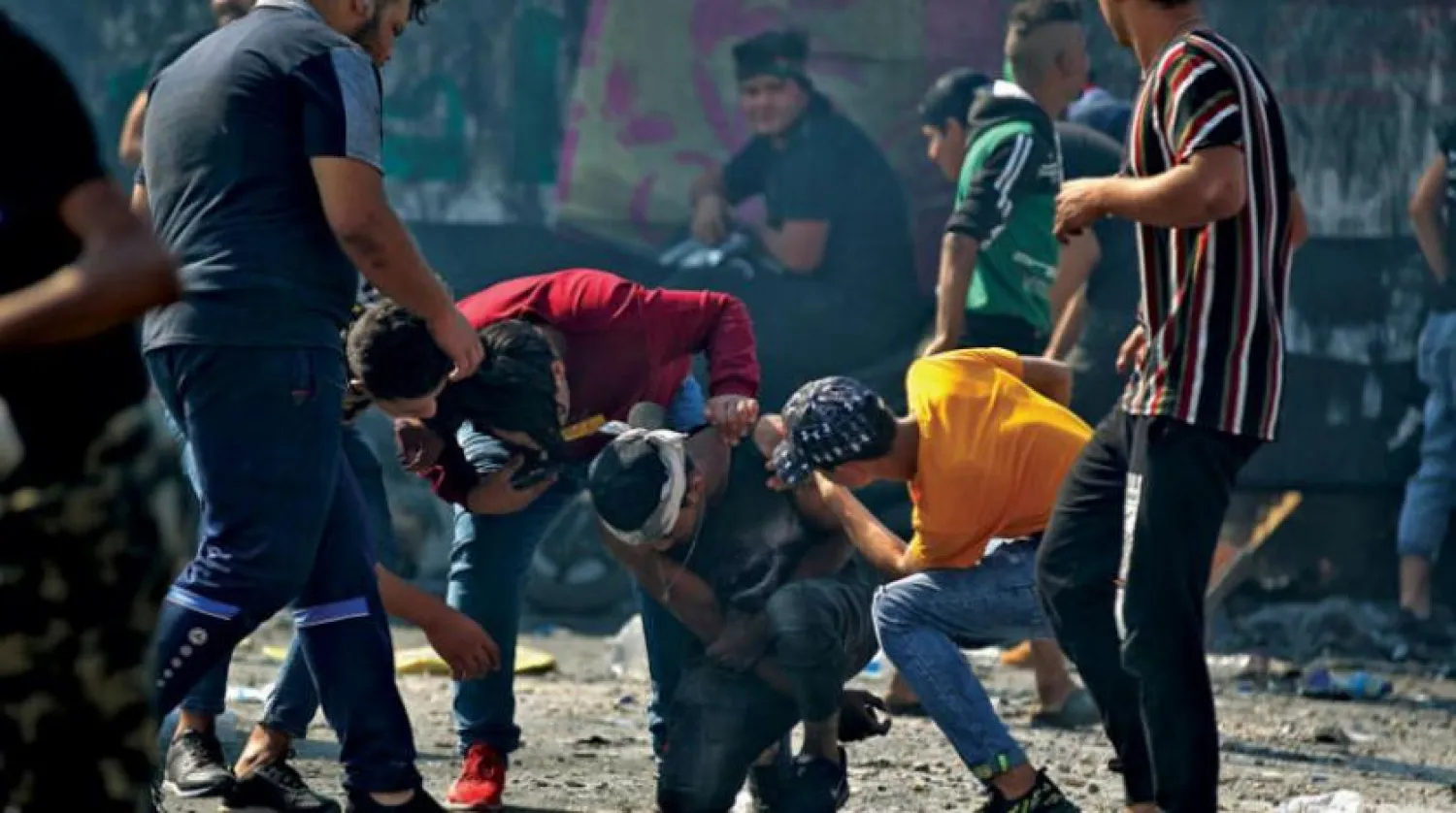Scores of independent Iraqi protesters packed away tents they had set up in central Baghdad’s Tahrir Square a day after marking one year since a wave of anti-government protests erupted and gripped Iraq in October 2019.
Activists reported on protesters fearing for their lives after groups affiliated with armed factions infiltrated the scene at Tahrir Square. They, however, supported keeping sit-in tents put up in other provinces in central and southern Iraq.
Iraqi activist Moussa Rahma did not rule out followers of armed factions staging a “massacre” against demonstrators in Tahrir Square if they had chosen to stay.
“There is an agreement between the government, parties and armed factions to end the sit-in, and there are those who talk about the possibility of security forces storming Tahrir Square during the coming hours or days,” Rahma warned.
The Sadrist Movement had the lion’s share of the blame cast by activists who feared for their lives after the group deployed its supporters to disband demonstrators at any cost.
It is not clear how protesters will organize their upcoming demonstrations, with rumors hinting they could be suspended until further notice.
While marking the first anniversary of the start of mass anti-government demonstrations, dozens of Iraqi protesters had clashed with riot police and security forces in Baghdad and Karbala.
Police fired stun grenades and tear gas at protesters who were burning tires and hurling rocks on the strategic Al-Jumhuriyah bridge across the Tigris River leading to the highly-fortified Green Zone, an AFP photographer reported.
The bridge, barricaded by towering concrete walls, separates the Green Zone from Tahrir Square, the epicenter of the old and new demonstrations.
Overnight in the shrine city of Karbala, which was a hub of demonstrations last year, protesters skirmished with riot police who eventually fired live bullets into the air to disperse them.
In Diwaniyah, young demonstrators set car tires on fire while in Nasiriyah, also in the south, as night fell protesters in the main square sung the national anthem amid celebratory fireworks.
The Human Rights Commission in Iraq announced on Monday that 171 demonstrators and policemen were injured during protests that broke out in Baghdad alongside other central and southern governorates.
“32 protesters were wounded, in addition to 138 security men, including 7 officers,” the Commission stated in a press statement.
It also pointed out that “the injuries were a result of the use of some non-peaceful demonstrators of three grenades and Molotov cocktails, in addition to the use of stones, batons and sticks.”









